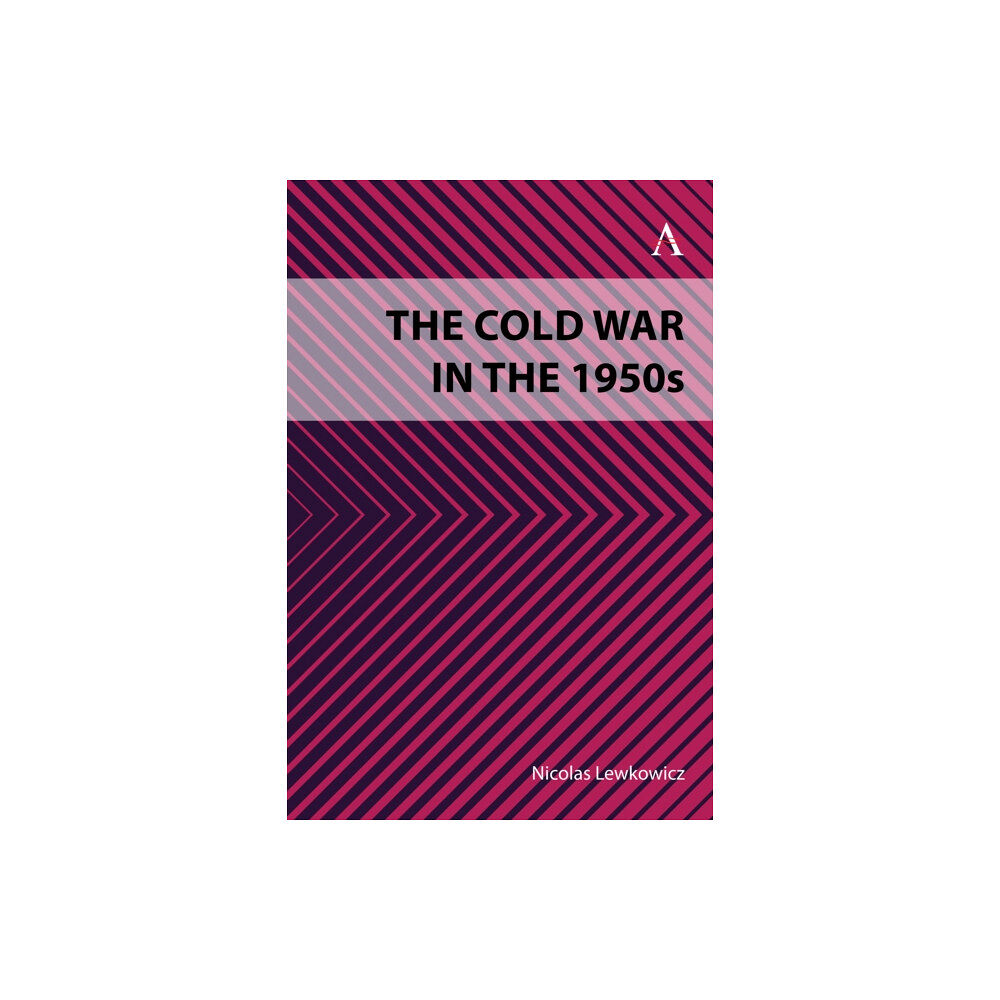- Hem
- Böcker
- Kurslitteratur
- Historia
- The Cold War in the 1950s (inbunden, eng)

The Cold War in the 1950s (inbunden, eng)
The book focuses on the ideological instruments that enabled the United States and the Soviet Union to consolidate their power and to pro...
- Fri frakt
Produktbeskrivning
The book focuses on the ideological instruments that enabled the United States and the Soviet Union to consolidate their power and to project their geopolitical reach. It provides a comprehensive picture of the geopolitical outcome generated by the actions of the superpowers in the 1950s and how they affected the international political order for the duration of the Cold War.
The book explores how in order to project the geopolitical power of the United States, there was a need to ensure that the countries affected by the confrontation that emerged in the 1950s would be persuaded about the good intentions of the United States when it came to promoting the economic and social rehabilitation of vast areas of the world.
The 1950s saw the beginning of the idea of a “global commonwealth” of nations, aligned with the geostrategic interests of the United States and willing to accept the political and economic principles projected from Washington. In the 1950s, American Exceptionalism was informed by three distinct particularist components: faith, dominion and managerialism.
The particularist markers of American Exceptionalism dictated the course of US foreign policy in the 1950s. American policy makers dealt with the threat posed by the Soviet Union by putting together policies aimed at securing the supremacy of the United States in the global order.
The Superpowers and the Cold War in the 1950s also argues that Eurasianism became an important instrument to entrench the geopolitical influence of the Soviet Union in Eastern Europe.
The cultural rapprochement between the Soviet Union and the countries of the Intermarium was propelled by the need to secure that area of Europe from interference by the Western powers. Eurasianism became an important instrument to legitimize the harmonization of political and economic principles in the Soviet bloc.
The concept of “redemptionism” propagated by the Soviet Union during the 1950s relied on a non-universalist notion of history that allowed Moscow to achieve geopolitical preeminence in its sphere of influence. During the 1950s, both superpowers were interested in achieving a situation in which the international political system could be controlled and managed efficiently.
In spite of the ideological differences that existed between the United States and the Soviet Union, there was agreement on the need to reduce the possibility of revisionist powers seeking to break the domination of the superpowers and establish independent political guidelines.
| Format | Inbunden |
| Omfång | 220 sidor |
| Språk | Engelska |
| Förlag | Anthem Press |
| Utgivningsdatum | 2024-03-12 |
| ISBN | 9781839985539 |
Specifikation
Böcker
- Inbunden, 220, Engelska, Anthem Press, 2024-03-12, 9781839985539
Leverans
Betalning
Specifikation
Det finns tyvärr inga specifikationer att visa för denna produkt.
